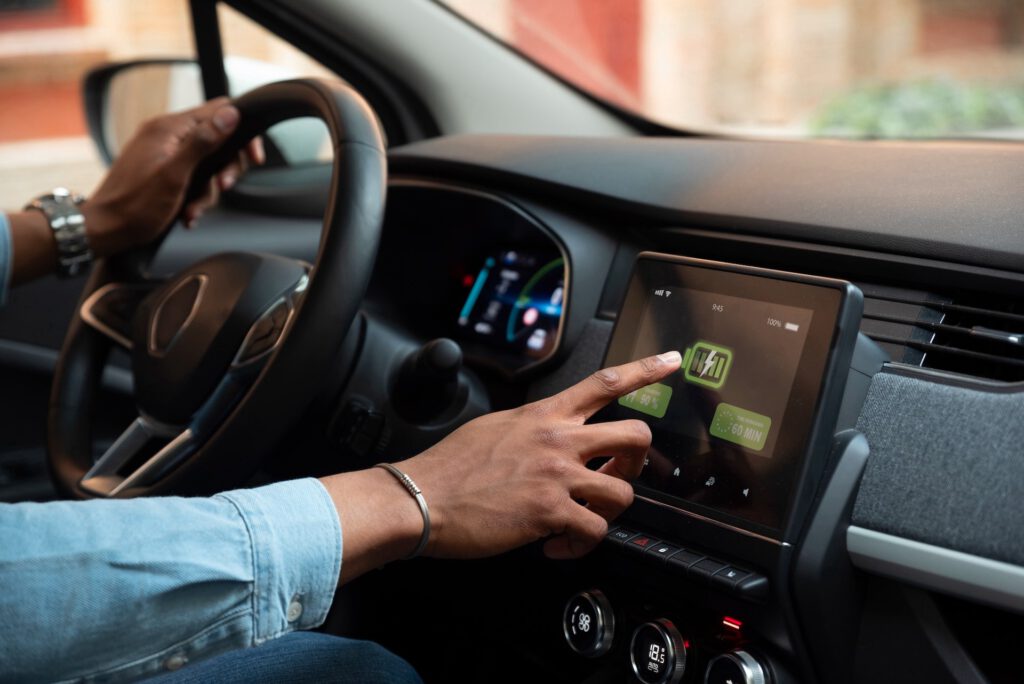Data has become a key tool in modern mobility as it drives innovation and improves user experience. It plays a major role in many areas of automotive technology, from navigation to vehicle performance analytics. According to a McKinsey report, 50% of new cars sold in 2024 will already be connected in some way, and this is expected to increase to 90% by 2030.
For drivers, this connectivity ensures safety, security, comfort, autonomy, performance, infotainment and assistance services. For automakers and the automotive industry, this can also involve large amounts of data, such as location, driver behavior and performance metrics.
However, as the value of data increases, so do concerns about cybersecurity risks and the leakage of sensitive information. To ensure user privacy and security in an increasingly connected world, protecting vehicle data is the first step.
Vehicle data vulnerability
Today’s cars are sophisticated data-gathering machines. They record a variety of data, including GPS location, acceleration, braking patterns, speed, and even in-car activity. According to VisualCapitalist, this ranges from 1.4TB to 25TB per hour.
Despite the benefits of this data, collecting and storing it can expose vehicles to cyberattacks. For example, in 2015, malicious actors hacked a Jeep Cherokee to remotely control its engine and brakes. More recently, Toyota Motor Corp. revealed in 2023 that a misconfiguration of its cloud services had exposed the vehicle location data of at least 2 million customers for more than a decade.
According to the VicOne 2023 Automotive Cyber Threat Landscape Report, the increased use and monetization of automotive data is contributing to a commensurate increase in the threat of exploitation by cybercriminals. A further challenge is that over 90% of automotive cyber attacks are not targeted at the OEM, but other companies in the supply chain.
The Challenges of Mobile Data Protection
Traditional data security models struggle to keep up with the dynamic, interconnected environment of modern vehicles. A key challenge is that older models were designed for fixed, independent systems, not the mobile, networked nature of today’s vehicles.
Meanwhile, vehicle data needs to be secured in real time across multiple networks and devices. In addition, the need to integrate third-party hardware and software further increases vulnerabilities. The situation is further complicated by the need for continuous upgrades and repairs to address new security threats.
The rise in attacks in the automotive industry clearly demonstrates how inadequate traditional data security models are. The dynamic nature of vehicular networks demands stronger and more flexible security solutions to protect sensitive data and ensure user privacy.
Innovative solutions on the horizon
This challenge requires solid and creative ideas to address the unique challenge of securing vehicle data. Decentralization may be a good way to improve data security and privacy in the mobility sector.
Blockchain technology inherently utilizes a system that is transparent, tamper-proof, and secure. The solution spreads information across a network of nodes, ensuring that no single point of failure can harm the entire system. Through this decentralized model, it addresses real-time data exchange, data integrity, and user privacy.
Unlike traditional centralized systems, a decentralized platform can manage large volumes of vehicle data at high speeds through a different approach to data security. The natural immutability and transparency of blockchain technology ensures data accuracy and reliability, reducing the risks of fraud, tampering and manipulation.
Leading by example
Soarchain is at the forefront of using blockchain technology to build decentralized mobility networks. Their innovative approach to data security leverages Layer 1 networks to enable secure, real-time data exchange between infrastructure, vehicles and service providers.
“Soarchain’s decentralized software brings numerous improvements, including enhanced privacy for personal data, interoperability between companies, data ownership, real-time data verification, greater transparency in the system, enhanced security, and a modular approach that offers massive scalability,” said Kerem Ozkan, co-founder of Soar Robotics.
The ability to manage and secure vehicle and mobility data will lead to a multitude of applications that improve the user experience: “Predictive vehicle maintenance, green driving, vehicle insurance based on the way you drive, ride hailing, road monitoring and traffic flow management, emergency roadside assistance, smart parking, and many more. Users will enjoy smart applications, cheaper services, real-time emergency assistance, longer vehicle lifespans, and greater diversity and interoperability,” adds Ozkan.
Soarchain leverages blockchain technology to ensure safety, transparency, and security of every data transaction. By eliminating centralized data storage, it protects user privacy and improves data integrity. By distributing data across multiple decentralized nodes, the platform ensures continuous data availability and reduces the risk of cyber attacks.
Soarchain has partnered with leading OEMs like Suzuki, Ford and Maruti to make mobility safer through V2X technology that connects vehicles with each other, pedestrians and infrastructure to make roads safer. By working with various stakeholders in the automotive industry, we partner with automakers, infrastructure providers and technology companies to ensure a safe and connected ecosystem that benefits all parties.
The Future of Automotive Data Security
Decentralized technologies like Soarchain can revolutionize data security for automotive applications by addressing the unique challenges of securing vehicle data. These technologies pave the way for a more reliable and secure automotive industry.
Moreover, the broad impact of these technologies extends to connectivity, networking and smart city projects, with effective urban growth relying on secure data exchange.
As the automotive industry advances, embracing decentralized solutions will be critical to protecting user data and ensuring privacy and security in connected cars.
TNGlobal INSIDER publishes contributions related to entrepreneurship and innovation. Subject to editorial discretion, you may submit your own original or previously published contributions.
Image credit: Freepik
The 3 hottest trends impacting FinTech deals in 2024

